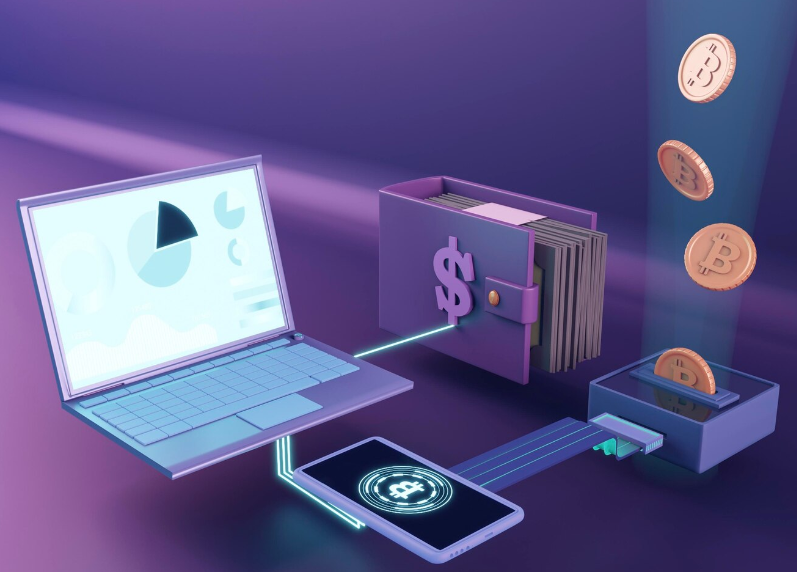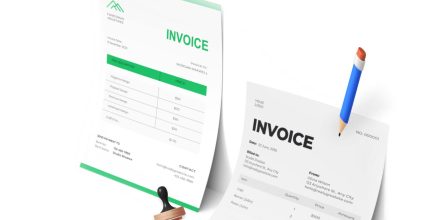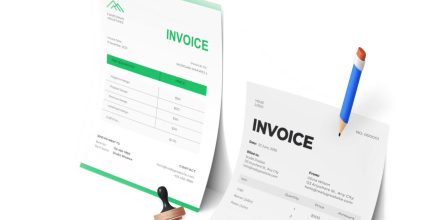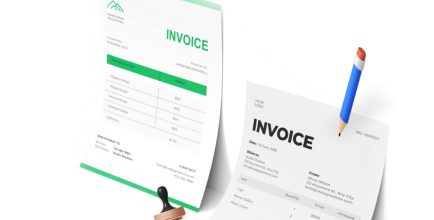Enhancing Transparency
Immutable Ledger for Trustworthy Transactions
Blockchain’s immutable ledger is a game-changer that ensures that every transaction within the invoicing process is recorded and traceable. This means once an invoice or payment information is entered into the blockchain, it cannot be altered or deleted, establishing a permanent record of the transaction. This immutability guarantees the integrity of the data stored on the blockchain, making it an invaluable tool for enhancing transparency between parties involved in the transaction.
For instance, in scenarios where goods are delivered but not invoiced correctly or when payment remittances don’t match invoiced amounts, blockchain’s transparent and immovable record-keeping can help identify discrepancies immediately.
Similarly, in the case of contract disputes, where there may be confusion about terms or fulfillment, the blockchain ledger provides an undisputable history of transactions and interactions related to the invoice and contract. This level of transparency and traceability can significantly reduce the occurrence of fraud, errors, and misunderstandings, making the entire invoicing process more efficient, secure, and trustworthy.
Improving Security
Blockchain’s unique decentralized framework fundamentally shifts the security paradigm for invoicing systems. Traditional methods often depend on centralized databases, which are vulnerable to cyberattacks and unauthorized access. In contrast, blockchain’s decentralized nature makes it exceedingly difficult for such breaches to occur. The requirement for consensus across the network’s nodes to validate changes adds a robust layer of security, protecting against tampering and fraud.
Each transaction recorded on the blockchain is encrypted with cryptographic hashes, forming a secure linkage of data blocks. This ensures that any unauthorized attempt to modify information would invalidate the chain, instantly signaling possible fraudulent activity. Whereas traditional systems might rely on more vulnerable security measures, the blockchain introduces a tamper-proof, self-verifying ecosystem. Smart contracts further reinforce this environment by automatically executing transactions based on pre-set conditions, thereby reducing the likelihood of disputes and eliminating the need for manual oversight. This automation not only enhances security but also introduces a higher degree of efficiency and transparency compared to older invoicing methods.
Reducing Fraud
Minimizing Invoicing Fraud through Enhanced Verification
The integration of blockchain technology into invoicing systems has had a profound impact on minimizing fraud. By virtue of its transparent, immutable ledger and decentralized architecture, blockchain provides an enhanced verification process that is inherently resistant to fraudulent activities.
Unlike traditional invoicing systems that rely on centralized verification processes, blockchain’s distributed ledger allows for immediate, consensus-based validation of each transaction by multiple parties. This not only adds layers of security but also makes it virtually impossible to tamper with invoice data without detection.
Streamlining Payment Processes
Automating Transactions with Smart Contracts
The advent of smart contracts in blockchain technology has been pivotal in automating and streamlining payment processes associated with invoicing. Smart contracts are self-executing contracts with the terms of the agreement directly written into lines of code. These digital contracts automatically enforce and execute the terms of agreements upon meeting predefined conditions without the need for intermediary oversight.
For businesses, this translates into automatic and instantaneous payment triggers once goods are delivered or services rendered, as per the agreed terms coded into the smart contract. This automation drastically reduces the payment processing time, eliminating delays often encountered in conventional invoicing systems that rely on manual verification and approvals.
It ensures that payments are accurate, timely, and directly correlated to the completion of contractual obligations, enhancing trust and satisfaction among involved parties.
Efficiency and Reliability: Blockchain vs. Conventional Methods
Comparing blockchain-based payment processes with traditional methods reveals significant improvements in efficiency and reliability. Conventional payment systems are hampered by manual intervention, lengthy bank procedures, and the involvement of multiple intermediaries, all of which introduce delays and elevate the risk of errors and fraud. The reliance on paper-based processes and the need for physical signatures further complicate the timely execution of payments.
In contrast, blockchain-based processes benefit from the decentralized verification mechanism inherent to blockchain technology, which confirms transactions almost in real time. This immediacy is coupled with a reduction in transaction costs, as the need for intermediaries is vastly diminished.
Additionally, the cryptographic security measures employed by blockchain systems provide an enhanced level of reliability. They safeguard against unauthorized tampering, ensuring that payment information remains secure and intact throughout the transaction process.
Challenges and Limitations
Despite blockchain’s potential to revolutionize invoicing processes with its transparency, security, and efficiency, several challenges hinder its full-scale adoption. Scalability issues are at the forefront; blockchain’s design often limits transaction capacity, causing delays. Interoperability concerns arise when different blockchain platforms are not compatible, complicating transactions and data sharing.
Regulatory and legal hurdles also persist due to the evolving nature of blockchain legislation and its decentralized model, which complicates compliance. Additionally, the high costs of implementation may deter smaller businesses from adopting this technology.
To address these challenges, efforts are being made to enhance scalability through new blockchain platforms and technologies like sharding. Projects focused on improving interoperability, such as Polkadot and Cosmos, are also underway.
A clearer regulatory framework is essential for wider adoption, as is the development of Blockchain as a Service (BaaS) offerings to lower entry costs. Education and collaboration between stakeholders will further facilitate integration and adoption, ensuring blockchain’s benefits can be fully realized in invoicing and beyond.



